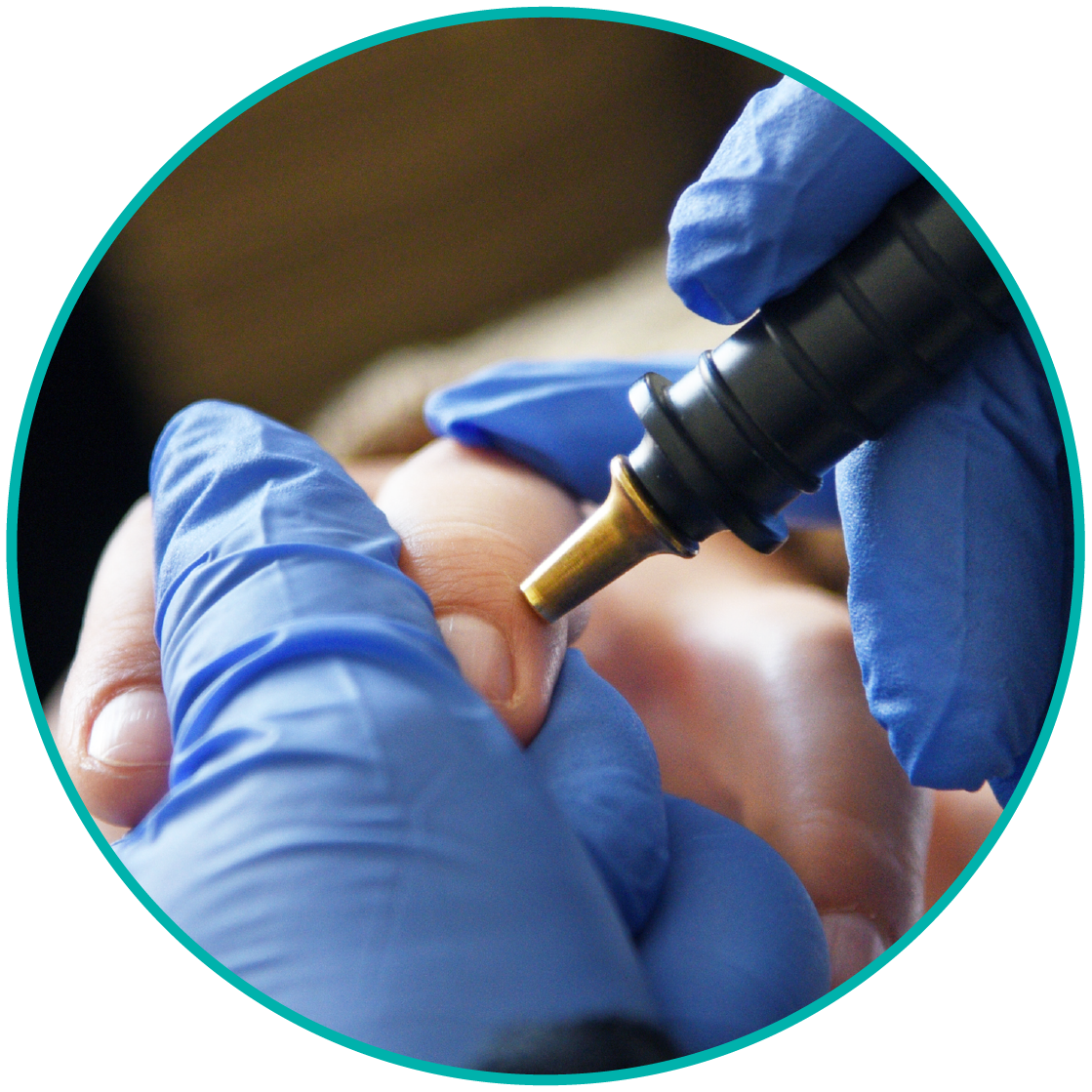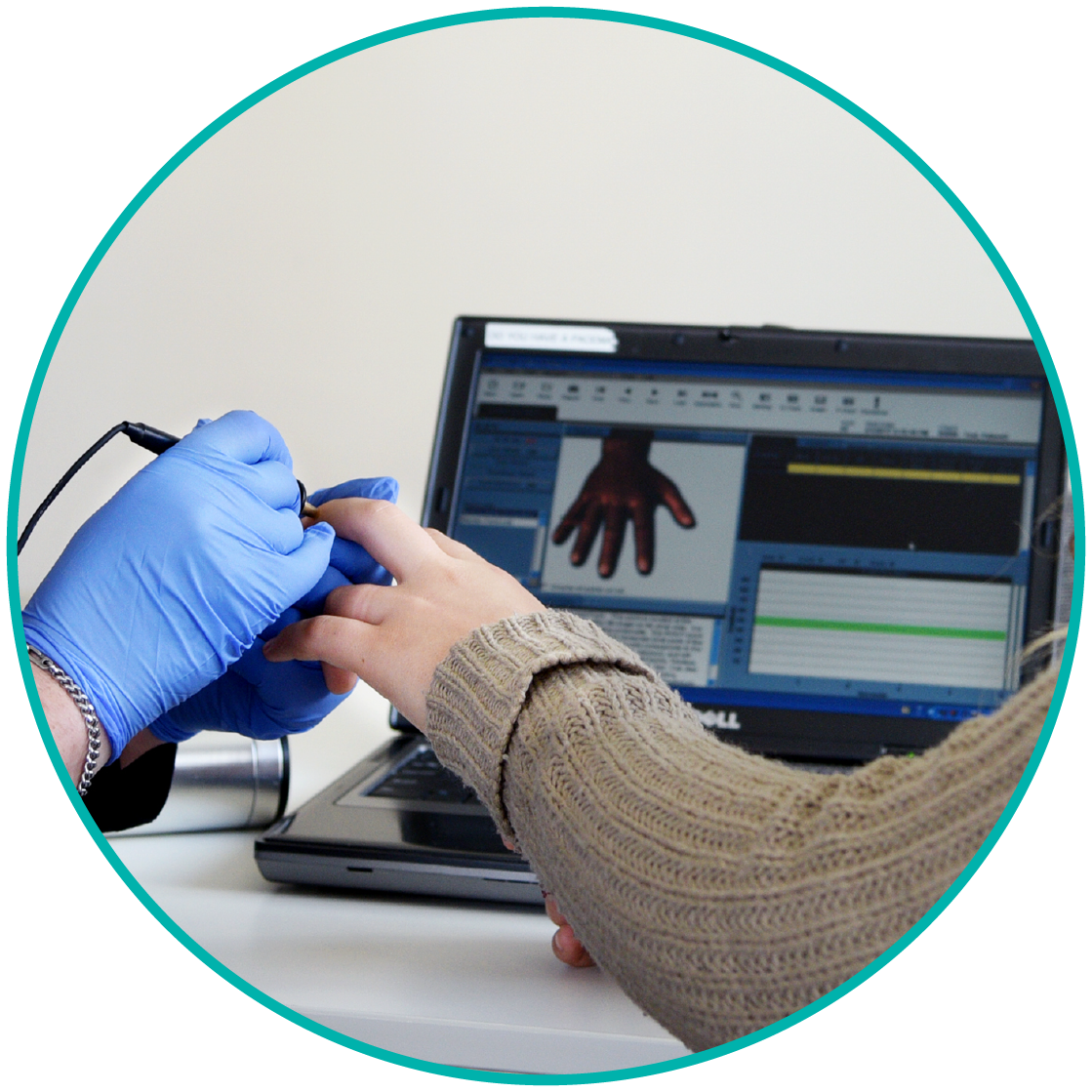
How does electrodermal screening work?
Electrodermal Screening (EDS) is a form of computerized information gathering which is based on physics, not chemistry. A blunt, non-invasive electric probe is placed at specific points on the patient’s hands, face or feet, corresponding to acupuncture points at the beginning or end of energy meridians. Minute electrical discharges from these points serve as information signals about the condition of the body’s organs and systems…. EDS uses a scale of 0 to 100, with a 45-55 being ‘normal’ or ‘balanced’. The key idea is that energy transfers its signal through an acupuncture meridian to the nervous system, with the end result being a cellular pathology. EDS is a ‘data acquisition process’….” (Alternative Medicine, issue 27, January 1999, p. 59)

Are the results accurate?
The foundation of this technology is the work of Reinhold Voll, M.D. almost 50 years ago. Voll’s work is often referred to as electroacupuncture according to Voll (EAV). Although relatively new to Canada this testing system is understood, accepted and widely used in many other countries including Germany, France and England. Today’s testing equipment is the end product of a 30-year evolution of Dr. Voll’s work that utilized a modern computer program, a sensitive ohm meter and a signal generator.
Research published in the Journal of Naturopathic Medicine concluded that electrical conductance data reviewed correspond with histological reports. In clinical practice, EDS instruments are useful as diagnostic supplements to blood test, radiographic image and case histories. The integration of reliable and valid bioelectric medical instruments into the clinical setting augment the ability to rapidly evaluate tissues…. Bioelectric medicine offers clinicians new quantitative methods for evaluations subtle electromagnetic changes in humans.”
Research published in the Journal of Naturopathic Medicine concluded that electrical conductance data reviewed correspond with histological reports. In clinical practice, EDS instruments are useful as diagnostic supplements to blood test, radiographic image and case histories. The integration of reliable and valid bioelectric medical instruments into the clinical setting augment the ability to rapidly evaluate tissues…. Bioelectric medicine offers clinicians new quantitative methods for evaluations subtle electromagnetic changes in humans.”
(additional research and studies are available from your testing technician, upon request)

What do I need to do to prepare for testing?
The primary thing to do is to make sure you are well hydrated. Also, the technician providing the testing, will ask you to remove any metal jewelry, watches, keys, pagers and cellular phones as they may interfere with the results. It is suggested that you not apply hand cream or lotion to either your hands or your feet. It may act as a barrier to accessing acupuncture points.
Electrodermal screening is fast, accurate and painless. Most appointments are 30 to 45 minutes in length. During that time you will be asked to hold a brass rod, or ground, in one hand and the technician will touch a metal probe to an acupuncture point on the hand that will be used but other points may be used on both your hands and feet. Although acupuncture points are used, there are no needles utilized in the testing and it is considered non-invasive.
Electrodermal screening is fast, accurate and painless. Most appointments are 30 to 45 minutes in length. During that time you will be asked to hold a brass rod, or ground, in one hand and the technician will touch a metal probe to an acupuncture point on the hand that will be used but other points may be used on both your hands and feet. Although acupuncture points are used, there are no needles utilized in the testing and it is considered non-invasive.

How could a food sensitivity test help me?
Although the simplest method of treating a food sensitivity would be to eliminate all pertinent foods, determining the foods that affect you most may be a long and difficult process. Food sensitivity testing, through electrodermal screening, is a quick and reliable resource to determine specific food sensitivities. Armed with a list of over 200 of the most common foods, and your readings on each of those foods, you will be able to make better and more appropriate nutritional choices. This information will assist you in attaining and maintaining optimum health.
To book, please call (905) 702-1944.
